Robert Raymer's Blog
July 18, 2025
“On Fridays” published in Thema (USA) and translated into Bahasa Melayu
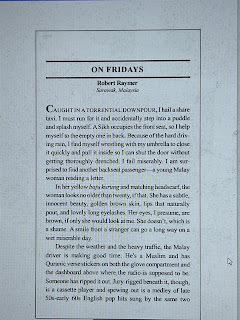

“On Fridays” was published as a reprint inthe Summer 2025 issue of Thema. This was the sixth time that Thema had published one of my Malaysian-setshort stories, five from Lovers and Strangers Revisited. Years ago, I pitched an idea to The Writerabout the writing of “On Fridays” based on my Story Behind the Story series, and the editor agreed and requested I follow an established format: The Work, The Problem, The Solution, Beforeand After. It was put on hold for a coupleof years (my last article took four years for them to publish). Then a new editor took over and the projectfell through the cracks. Ithappens. When Thema accepted thestory last year, I updated what I wrote for The Writer and resubmittedit along with the previous editors acceptance and format suggestions. Still waiting…
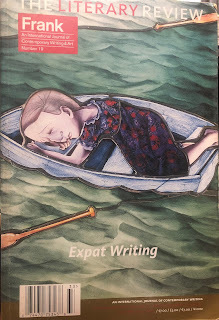
THEWORK: “On Fridays,”published in the Fall 2003 issue of TheLiterary Review (US) and Number 19 of Frank(France)—a joint venture on Expat Writing. Published fourteen times insix countries, originallyin Female (Singapore, March 1989), then later reprinted in Cha: An Asian LiteraryReview (Hong Kong, 2010) and Thema (summer 2025).
THEPROBLEM: The original idea for “On Fridays” came when I lived in Penang,Malaysia working part-time as an adviser for MACEE, Malaysian AmericanCommission on Educational Exchange. EveryFriday I would take a sixteen-kilometer taxi ride into George Town—a shared taxiwith other passengers getting on and off at various locations.
Fromthe hundreds of taxi rides that I took, I chose to create one that wasrepresentative of all those rides. Byusing the senses—see, hear, feel, taste and smell—I tried to make this one taxiride as realistic as possible by putting the reader in that taxi with me. If they believe in that taxi ride, thenthey’ll believe in the story. That it’sthe “truth;” that it “happened;” that there really was “a girl;” and that I’mstill “searching” for her.... Invariably my students would ask, “Have you foundher yet?”
I saw this taxi as ametaphor for multiracial Malaysia, where various races lived and worked togetherin relative harmony. In the story, an expat,an unnamed Westerner, becomes interested in a Malay woman sitting beside him. She is reading a letter and crying. He wants to comfort her, but feels self-consciousbecause of the other two passengers and the Muslim taxi driver.
Normally I write inthe past tense, third person but chose to write this story in the present tenseto give the story an immediacy, and hopefully a timeless quality…and make itlinger, especially the ending, so it would seem like it just happened. I also wrote it the first person at theexpense of people assuming it’s autobiographical. Unlike the character, I don’t paint, and thecharacter taught English years before I did. The effect I was going for, I felt, would be better served because Iwanted the reader to closely identify with the narrator, to see himself inthis, or in a similar situation, and think about what he or she would do. This was the one story from my collection Loversand Strangers Revisited that people would mention and relate a similarexperience of their own.
When I first wrote thestory, I had a lot of details describing the Malaysian sights along the way. An editor from the UK made the comment that itread too much like a travelogue. Aneditor in the US suggested that I lop off the final paragraph. I didn’t like his suggestion, yet I felt hehad a point. Also, readers unfamiliar with living in Malaysia, a Muslimcountry, may question the expat’s motives, so that would need to be addressedwithout intrusion from the author. Thena few matters of truth were getting in the way of the story. Already I can hear protests, “But that’s theway it happened!” Yes, no doubt, but toget to the essential story, the “real” story, sometimes you need to take a stepback from your truth and ask yourself, does your truth serve the story, or doesit hamper it? Truth often gets in theway of a good story.
THESOLUTION: I cut out most of thedescriptions outside the taxi that weren’t essential to the story itself, justthose that highlighted that it was miserable, raining day. With that US editor, we agreed to compromiseby rearranging a couple of paragraphs at the end, to make the story moreeffective, so the focus wasn’t on the man’s loneliness, but on his obsession intrying to find the girl. It was alsosuggested that I make the expat character single. Him being married (like me) raised some moralissues—is he cheating on his wife? Goodadvice, which I took—an example of how “facts” or “truth” can have unforeseenconsequences in your fiction.
Areader, unfamiliar with Malaysia, asked me what’s the big deal if he does touchthe young Malay woman in the taxi, so I worked in the character’s concern aboutbeing arrested for “outraging her modesty” with three potential hostilewitnesses. As a writer, you can’t alwaysassume that overseas readers will understand a local concern or what is atstake.
ThenI got to thinking, why doesn't he get out of the taxi at the jetty and followher after that yearning look that she gave him (I would), and if he does, Iwould need to make it clear why he has to return to the taxi, for fear oflosing his job, something difficult for an expat to get without a work permit. So, I added this new scene to the story.
BEFORE AND AFTER: Although this story had already been published in five countries andincluded in a collection of short stories, this revised version was accepted byFrank, a literary magazine in France, whose editor, incidentally, wasa guest editor for The Literary Review for a joint venture on Expat Writing. For me, a double surprise. As an Americanliving in Malaysia, I submit a story to France and it gets published in the USand France! Later, Lovers andStrangers Revisited was also translated into French.
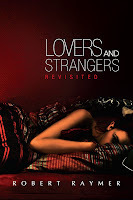
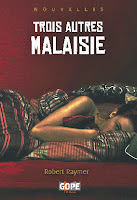
Speaking of translation, I recently discoveredby chance that “On Fridays,” had been translated in Bahasa Melayu and uploadeda year ago for a UniversitiTeknologi Mara course, from College Sidekick, which, Igather, gathers material. They claimthat they are not sponsored or endorsed by any college or university. Did they ask me or my previous publisher for permission to translate thatstory? Did they even attempt to contactme?
Makes me wonder whatother stories from that collection have been translated in Bahasa Melayu? Or even the whole book. At one time, Ithought that would happen. Maybe it has,and I’m just unaware. Maybe it’s time I investigate,even look at the possibility of having the collection officially published intoBahasa Melayu.
—Borneo Expat Writer
May 3, 2025
Encyclopedia Britannica: A Mother’s Gift Honored in Time for Mother’s Day
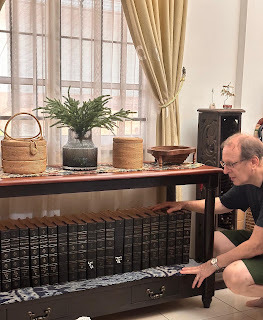
In Borneo, I finally found a proper placefor my Encyclopedia Britannica, a gift from my mother. I was fifteen years old when I filled out oneof those mail-in cards inserted inside magazines. One evening a knock came at the door and asalesman from Encyclopedia Britannica appeared, saying they had received arequest. My mother and my stepfatherwere quite baffled until I meekly admitted that I was the guilty party.
I knew at the time that they couldn’tafford such a luxury item when no one, other than me (and occasionally a brother),read. They did know that I had goodgrades and that I planned to go far. They were not thinking in terms of geography so it never crossed theirminds that I would travel to 36 countries and live in Malaysia for forty years(21 years in West Malaysia, Penang; 19 years in East Malaysia, Kuching). They also knew that I planned to go to college,not that they could afford that either.
They invited the salesman, who strategicallydidn’t call ahead of time, inside our house and sat with him at the diningtable and listened to his sales pitch and how much this was going to cost them. Trying to keep a low prolife, I circled behindthem now and then, wondering how all this was going to play (or pay) out. To my utter astonishment, my mother and stepfatheragreed, and the entire set of Encyclopedia Britannica was mine.
Neither was I punished nor reprimanded,other than mildly—they did strongly advise me not to fill in any more ofthose cards inserted inside random magazines…
My mother, which I just rediscovered, hadwritten inside the cover of Volume One:
The owner of all these books is RobertJ. Raymer, June 1972
After attending Miami University andspending three months backpacking in Europe, I moved from Newark, Ohio toBoulder, Colorado, and the encyclopedias came with me. They also followed me to Madison, Wisconsinwhere I began to write using a typewriter. In those pre-computer, pre-Internet days, those encyclopedias did comein handy.
Then I moved to Penang, Malaysia, bringingmy typewriter and encyclopedias with me. I consulted them regularly. Itwas part of my job as a writer—there was always something to investigate orresearch. One child (two actually) wasborn in Penang and the other in Kuching, Sarawak on the island of Borneo. Future users of my encyclopedias, which they mostly ignored.
Over the years the encyclopedias resided (ortook up space) in various boarding rooms, apartments, condos, and houses. If space was an issue, sometimes under my bedor in various offices upstairs and down, in storage boxes, and on a bookshelf nestledinside a storage closet for relatively easy access. As my Encyclopedia Britannica began to age, someof the numbers and letters on the spine became too faint to see, so I usedwhite-out. I know, tacky.
Recently, our second child graduated fromsecondary school, so after removing various school-related boxes out of the way,voilà, a space became available that I thought would be just perfect—perfectlysuitable for my Encyclopedia Britannica.
Now all I had to do was convince my wifethat these fifty-year-old encyclopedias that I hardly touch these days deserve afitting location in honor of my mother who passed away in 2019. Thankfully (perhaps reluctantly on her part),she agreed. For how long, I don’t know. For now, they are in place in time for Mother’sDay—for the mother who presented me that set of Encyclopedia Britannica when Iwas just a kid, obviously going places. Thank you for investing in my future as awriter.

—Borneo Expat Writer
April 17, 2025
Writing Excerpts and Entering James Jones First Novel Fellowship

After blogging about taking two years to rewrite six novels, I received some nice comments from an editor at Shenandoahabout an excerpt I had submitted. She suggested,however, that I submit an excerpt from the beginning of the novel—that way thereader could get acquainted with the characters and the setting as the ‘story’develops. Good advice, I thought. Excerpts from the middle or near the end ofthe novel might be harder for them to stand on its own without the necessarycharacter developments or backstories. That would depend on the novel or its structure.
While contemplating the beginning of thenovel as a stand-alone excerpt, I suddenly realized (or forgot) that the JamesJones First Novel Fellowship deadline was near—for those who have not publishedor self-published a novel. Since they requirethe first fifty pages of the novel and a synopsis/outline, I decided to take acloser look at those fifty pages (even going through each chapter three times, then those fifty pages three moretimes as I did before). I figured sincethe first fifty pages (or the first three chapters) is what I normally submitto agents, I’ll benefit from that, too.

After submitting my entry, I then created thatnew excerpt for Shenandoah. From chaptersOne-Four, I cut out the parts not relevant to the ‘story,’ though relevant to thenovel, thus cutting the length down from 11,276 words to less than 8,000 words,their maximum length. I titled theexcerpt, “Ask Questions Later.” By then,unfortunately, Shenandoah’s submission period had closed (they hadreached their quota early and wouldn’t reopen for several more months.) So, I had to find another market thataccepted novel excerpts—so long as they could stand on their own. Fortunately, I found several.
Years ago, I used to do this with my first Penang-setnovel. Partsof the five chapters have been published fourteen times in six countries,including the US, UK, and Australia. Ihad less success with excerpts from other novels. Maybe I hadn’t tried hard enough to marketthem or gave up too soon or failed to update them after a rewrite…
I’m now considering rewriting the firstfifty pages of all six novels before the year is out (half way through, actually) and seeing what Ican fashion into excerpts that can stand alone. Hopefully the excerpts can attractinterest in the novel itself as I continue submit to agents. So far, I’ve resisted self-publishing,despite some amazing success stories, or co-publishing, despite one enticingoffer. (That first novel could’ve beenpublished twenty odd years ago in Singapore! Regrets, maybe.)
Plenty of novels, ofcourse, have grown from published short stories (and plenty of unwritten novelshave died after that first chapter since it had nowhere to go, even though it worked as a short story). Plenty of novelshave also spawned excerpts or short stories as well. It goes both ways. As I writer, you got to do what you can with your fiction, take those necessary steps that canlead to publication and move you closer to where you want to be.
—Borneo Expat Writer
My interviews with Malaysian writers:
Ivy Ngeow author of Cry of the Flying Rhino, winner of the 2016 Proverse Prize. Golda Mowe author of Iban Dream and Iban JourneyPreeta Samarasan, author of Evening is the Whole Day, finalist for the Commonwealth Writers Prize 2009.Chuah Guat Eng, author of Echoes of Silence and Days of Change.
Malachi Edwin Vethamani, author of Complicated Lives and Life Happens.
April 13, 2025
Catching Up: Reading a Backlog of Short Stories…
I admit I had been putting off reading severalcollections of short stories. I kept themon a separate shelf divided by those I’ve read, those I haven’t. A couple of months before the end of last year,I committed myself to plowing through them once and for all. I began with Nadine Gordimer’s anthology, TellingTales with award-winning writers like Gunter Grass, Gabriel Garcia Marquez,Margaret Atwood, Salman Rushdie, and Arthur Miller.
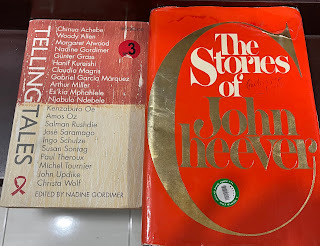
Then came Bobbie Ann Mason’s Shilo andOther Stories; Joanne Greenberg’s Rites of Passage (read the firststory a couple of decades ago, liked it, but never got around to reading therest); Isaac Asimov’s Nine Tomorrows (signed copy, though second hand. “The Last Question” blew me away—never sawthat great ending coming!) Later, I cameacross an interview where Asimov stated that was his favorite story.
Next, I read Lorrie Moore’s Birds ofAmerica (I sort of met her in Madison, Wisconsin before I knew who she was,other than a writer making photocopies, before I began writing my own stories. Never on a first name basis, though; a missedconnection). Jhumpa Lahiri’s UnaccustomedEarth (loved her first collection so don’t know why it took me years toread this.); Alice Munro’s The Love of a Good Woman; The Stories ofJohn Cheever (the big red hard cover that won the Pulitzer Prize); TheCollected Stories of Jean Stafford (another Pulitzer Prize winner); and ThomasPynchon’s Slow Learner (his early work).
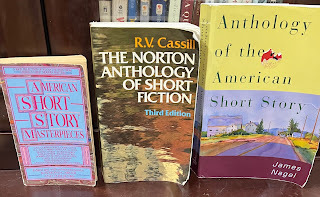
I was just getting warmed up. I then read three anthologies: American Short Story Masterpieces editedby Raymond Carver and Tom Jenks; Anthology of American Short Storiesedited by James Nagel; and Norton Anthology of Short Fiction, thirdedition, R.V. Cassill. These last threealone had combined pages of 3,038, which may explain why I kept putting themoff. Some of the stories were repeats ofwhat I had read earlier or years before. Many of those, I reread. Others Ihad never heard of, nor the writers (some brilliant stories, too). I enjoyed the sheer variety of great, well-writtenshort stories, some dating back 170 years.
Some stories you read once and stays with youa lifetime like an Edgar Allan Poe story, or Jack London’s “To Build a Fire.” Haunting stories about life and death andsurvival, like escaping capture in the desert and finding yourself sharing acave with a panther as in Honoré de Balzac’s “A Passion in the Desert.”
So, the next time you have the urge to pickup a collection or an anthology of short stories, do so. You won’t regret it. In fact, it may inspire you to write one ofyour own, even set in your own country like Malaysia—a great story, no matter where it isset, is a great story…. I began writing my own set-in-Malaysia stories a couple ofyears before I decided to move here for good. One of the stories, “On Fridays,” after rewriting it (rewriting all my stories), is appearing this summer, as a reprint, in Thema (USA).
Next up, or maybe next decade, TheComplete Works of William Shakespeare which I bought four decades ago whenI was still a bachelor living in America before I began to write...
—Borneo Expat Writer
My interviews with other Malaysian writers:
Ivy Ngeow author of Cry of the Flying Rhino, winner of the 2016 Proverse Prize. Golda Mowe author of Iban Dream and Iban JourneyPreeta Samarasan, author of Evening is the Whole Day, finalist for the Commonwealth Writers Prize 2009.Chuah Guat Eng, author of Echoes of Silence and Days of Change.
Malachi Edwin Vethamani, author of Complicated Lives and Life Happens.
September 16, 2024
So, is your novel Literary? Commercial? Upmarket? Book Club?
Whenever I submit oneof the six novels that I recently rewrote in trusting the process to an agent, I’m often asked, via online, what is the category? This in not so much about genre (romance,horror, sci-fi), but about marketability. Is it Literary? Commercial? Upmarket? How about Book Club? Well, that depends (and depends on whichbook)… One day I’d say, literary, then the next time I’d lean more toward commercial,or I’d think (wishful thinking, perhaps) maybe it’s upmarket…
I used to know, buta lot has changed in the marketplace in the last ten to twenty years. Even within Malaysia/Singapore. Suddenly, I’m not so sure of today’s distinctionsbetween literary, commercial, upmarket, book club. Some seem to overlap.
To re-educate myself I did some digging andfound this informative article by LouiseTondeur of Jerico Writers: “Upmarket Fiction: Everything You Need To Know.” Shedid a great job defining what upmarket means (comparing it to literary andcommercial); gives some examples, and shows how to achieve that in your ownwriting, and offers tips. Her other links seem useful, too.
The next time someone(an agent, a friend) asks about the book you’re working on (not just the genreor the plot, but its market), you’ll feel more confident in your answer. If in doubt, get educated! Education is ongoing no matter how longyou’ve been writing or how many books you’ve written. Markets change, so does the marketability of yourbook. In fact, might be a good idea tothink about your market before you write your next book. Ask yourself: Who am I writing this book for? Who do I see reading it? If it’sjust you (and others like you) or for someone special—great, start there. Later, you can add readers along the way…
—Borneo Expat Writer
August 25, 2024
“On Fridays” to be published in Thema (USA)
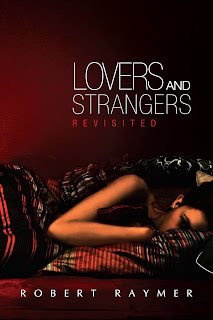 As I wrote in arecent blog, every few years I get this urge to rewrite the 17 stories from Loversand Strangers Revisited. The first story,“On Fridays” has just been accepted by Thema as a reprint in their A NewRoutine issue (summer 2025).
As I wrote in arecent blog, every few years I get this urge to rewrite the 17 stories from Loversand Strangers Revisited. The first story,“On Fridays” has just been accepted by Thema as a reprint in their A NewRoutine issue (summer 2025).
After submitting another story, I thought, whynot try “On Fridays” as a reprint since it fit the theme? I didn’t know if they accepted reprints—it was previouslypublished in The Literary Review in 2003, which I acknowledged in thecover letter. Figured I had nothing tolose.
When I received an email from Thema,the subject line stated, “Acceptance,” so I knew that it contained good news. I forgot which story I had sent them. I was even more surprised when it was “On Fridays.” I had completely forgotten I had sent itas a reprint. I double checked to make surethat I had informed them. As a reprint,the story will earn less than it would have as an original story, but I’m notcomplaining.
So now the stories from Lovers andStrangers Revisited have been (or will be) published 83 times in 12 countries(12 stories in USA and UK). Not bad,which is exactly why I get this urge every few years to rewrite these stories, becauseyou just never know when another one will be published.
This is also thereason I spent two years rewriting six novels (and two collections of storiesand a play), because you just never know. You must trust the writing process and keep submitting your work andkeep your fingers crossed that an agent or an editor will say, hey, this is notbad…in fact, it is quite suitable for our present needs…
—Borneo Expat Writer
August 4, 2024
Faulkner-Wisdom Novel Awards—2024 Finalist for Novel: One Day Among the Ruins: A Lesson in Love and Friendship

One Day Among theRuins: A Lesson in Love andFriendship, one of the six novels that I rewrote between 2022 and 2024 andblogged about,was named a finalist by ThePirate’s Alley Faulkner Society’s The William Faulkner– William Wisdom Creative Writing Competition.

This was also my COVID-19pandemic project that I finished in 2022 then rewrote this year for thecompetition. Here is the pitch I’ve beensending to agents:
One Day Among the Ruins: A Lesson in Love and Friendship (111,985)
An American backpacker and a British expatriatewidow experience a lifetime in oneday at Pompeii and a night in Naples. Eat, Pray, Love meets The Graduate meets Indecent Proposal
One autumn day in 1978, between college and career,Maddox, an American backpacker in a funk about missing a love-interest inRome, meets Alexis, . Theirunlikely, cross-generational friendship is forged among the ruins ofPompeii as they share their personal tragedies and troubled families, fillinga void in each other’s lives. Yet who isthe teacher…who is the student? Eagerto learn more about her near-death experience, Maddox dares Alexis to joinhim for pizza in Naples. Later he daresher to dance and dares her to accept an unusual birthday present, teachinghim about love. For Alexis, the darefeels like an opportunity to recover some loveless years, if only she couldforget about the gut-wrenching dilemma that shehad to face in the waning days of her son’s life.
Alexis and Maddox camefrom differentgenerations, different worlds: Alexis, bornin India, the pampered daughter of British Raj officer, married off young onlyto become a widowed war bride at eighteen, then a survivor of the LondonBlitz, while Maddox hails from a dysfunctional, blue-collar Midwestern familywith multiple divorces and parasitic stepsiblings. One thing they do share, other than theircompany, is their brutal honesty.
“—tend to see the world in black and white,”Alexis informs him. “Most of life fallsinto a gray realm. Rarely are there rightanswers.” She later adds, “For both of us, thiswas our journey that we had to make…to find ourselves in Pompeii—onethe teacher, the other, the student. Only God knows which is which. Inlife, as you will discover, each of us teaches and learns, often at the sametime.”
Having backpacked three months in Europe in 1978 (and a month in Italyin 1985), having visited Pompeii (with journal, guidebook, and Bulwer-Lytton intact),having lived for twenty years in Penang as an expatriate (like Alexis), I havetried to show how that one day—a time capsule, really—can resonate inunexpected ways in world events being played out today.
—BorneoExpat Writer
My interviewswith other Malaysian writers:
IvyNgeow author of Cry of the Flying Rhino, winner ofthe 2016 Proverse Prize.
GoldaMowe author of Iban Dream and Iban Journey
PreetaSamarasan, author of Evening is the Whole Day, finalistfor the Commonwealth Writers Prize 2009.
ChuahGuat Eng, author of Echoes of Silence and Days ofChange.
MalachiEdwin Vethamani, author of Complicated Lives and LifeHappens.
March 25, 2024
Trust the Novel Writing (and Rewriting) Process

Two years ago, in March of 2022, after finallycompleting a sixth novel (set in Pompeii about an unusual friendship betweenan American backpacker and a British expatriate widow residing in Malaysia),I got the idea to rewrite a couple of my other novels (to give them a fightingchance in a tight US/UK market). While Iwas at it, I did all five novels, plus two collections of short stories (includingLovers and Strangers Revisited that I recently blogged about, anda play, a comedy based on the short story “Neighbors”).
I knew that a quick read wasn’t going to dothem justice, so I decided to give each novel what I came to call the 9Xtreatment. First, after printing them out,I would line edit each manuscript 3X (three times)—in black, in blue, and inred. Then on the computer, I would gothrough each chapter 3X—making additional corrections and tightening thewriting by cutting and rearranging sentences, paragraphs. (Never assume your writing is good; assumeyou can make it better!)
Then for the final 3X, I would go througheach manuscript beginning to end. Thefirst pass is straight forward and gives me a good feel for pacing, structure, chronologicalorder, internal logic—is it working or not? For the second pass I would start with the last chapter, then the nextto last chapter, working my way to the first chapter. Editing chapters out of sequence is powerful. It makes you think…wait, did I mention this detailearlier; then double check those earlychapters and make the necessary changes. A good way of catching those errors of omissions!
If I add new details at this stage, I wouldimmediately go back and reference those details, if necessary, in the earlier chapters(lest I forget later). Of course, Iwould do the same while editing the manuscripts in various colors, scribblingin my notes and reminders to add in or move around various paragraphs or ashift a scene to a more effective location. Then I would go through the manuscript one more time from beginning toend to complete the 9X process. For theshort stories, since each story is complete within itself, I would stop at6X.
Early during this novel rewriting process, Igot a great idea for a seventh novel. Notwanting to be distracted, I began shoveling notes (and eventually notebooks) intoa loose folder. By mid-2023, I added myPompeii novel back into the mix to help cut the length and improve it withfresh eyes, impressed by what I had accomplished thus far with the other novelrewrites.
I also created a progress chart for alleight manuscripts since their progress overlapped, and would then check offeach completed step in the 9X process. Noskipping steps along the way just because no one else is looking!
True, it was a lot of work. It's also a nice feeling knowing that I followedthrough the entire process, thus keeping my commitment to myself. When I started, I didn’t think it would taketwo years! Nor had I planned to do allfive novels, let alone redo that sixth novel, plus both collection ofstories and that play that had been sitting idle for nearly a decade. I kept thinking, while I’m at it…
And while I’m at it, I’ve started a newprogress chart for 2024 and the remainder of this decade (and the next—I’m beingambitious!) for future novels, beginning with that seventh novel, having accumulatedover 400 pages of notes these last two years. Plus, I have several previous novels on hold for one reason or another, somewith complete rough drafts; others, a third of the way through the firstdraft; or with hundreds of pages of notes already in the computer, includingsequels to the other six novels.
Itching to get started, I’ve already begun writingthat novel number seven. In the meantime,I’m hoping one of these six rewritten novels will open the door for the others,making it all worthwhile. Or maybe itwill be this seventh novel… You just have to trust the novel writing(and rewriting) process.
—Borneo Expat Writer
My interviews with other Malaysian writers:
Ivy Ngeow author of Cry of the Flying Rhino, winner of the 2016 Proverse Prize. Golda Mowe author of Iban Dream and Iban JourneyPreeta Samarasan, author of Evening is the Whole Day, finalist for the Commonwealth Writers Prize 2009.Chuah Guat Eng, author of Echoes of Silence and Days of Change.
Malachi Edwin Vethamani, author of Complicated Lives and Life Happens.
February 1, 2024
“On Fridays” UiTM Google Meet That I Almost Missed!
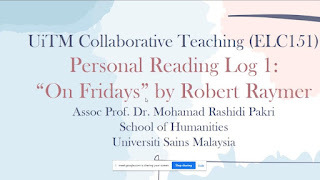
May of last year, I was up at 5:15 a.m. toget my son off to school. Not feelingwell (lack of sleep, perhaps), I went back to bed. A phone notice woke me up, informing me thatmy story “On Fridays” from Lovers and Strangers Revisited, which I recently rewrote and blogged about, was being discussed in a Collaborative Teaching at UniversitiTeknologi MARA or UiTM—Penang (Bertam campus), led by Associate Professor Dr. MohamadRashidi Pakri of USM (discussing the literary aspect of the story) and NazimaVersay Kudus of UiTM.
Previously, during Covid lockdown, I hadbeen invited by Nazima to join Google Meet to answer questions about my shortstory "Neighbours" also from Lovers and Strangers Revisited for her Faculty of Health Science students. This time around, since it involved aboutsixty students from several classes from Health Science, who are learning aboutnarrative writing, it was more practical to record and share the session amongthe students than to get them all together at one time, even online.
Surprisingly, I had not been forewarned, or was I a last-minute inclusion—hey, let’s wake up Robert to see if he’s available! Either way, I was too late for the discussion,but I did manage to join the Q & A session.
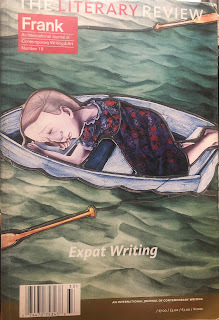
“On Fridays,” the first story from Loversand Strangers Revisited has been published over a dozen times in seven countries. In 2003, it appeared in The LiteraryReview (USA) and Frank (France) in a joint publication. I had sent the story to the editor of Frank,unaware that he had been asked to be the guest editor of The Literary Review,so he chose “On Fridays” for their joint issue on Expat Writing. The story, about an expat living in Penang,Malaysia who sits beside a crying woman in a taxi, later appeared as a reprintfor Cha: An Asian Literary Journal in 2010. Since then, the story had been revised severaltimes in my effort to finally get it right…
I would like to have listened in thesession, to hear what the students thought of the story since they would be freerto discuss it without the presence of the author—for fear of embarrassingthemselves or offending him—so why did we have to read that stupid story in thefirst place? It nearly put me to sleep! Hopefully, no one said that or felt that way!

By the time I came on board, or online, (freshlyshowered and wide awake) some students may have already left (is he coming ornot?) The questions they did ask me werestraight forward. Why did he, the unnamedfirst-person character, feel compelled to hold her hand instead of justspeaking, “Hi, how are you?” Was it importantthat she wore traditional clothes? Didthe story really take place? Was it atrue story? More than once, in the past,I had been asked, “Have you found her?” “Areyou still looking for her?” Many of these questions I had discussed in theStory Behind the Story (which I wrote for all seventeen storiesfor the MPH publication), about how the story came to be written, how the storyevolved after its initial publication, what significant changes I made to thestory (and why) that led to subsequent publications overseas…
Having wrote the story in 1988 (first publishedin the March ’89 issue of Female in Singapore), I feel honored that thestory “On Fridays” is still being taught in 2023, 35 years later, and it stillresonates with university students who can identify with the characters, even alonely expat inside a share taxi on a rainy day sitting beside a crying Malay womanreading a letter on blue paper…
—Borneo Expat Writer
My interviews with other Malaysian writers:
Ivy Ngeow author of Cry of the Flying Rhino, winner of the 2016 Proverse Prize. Golda Mowe author of Iban Dream and Iban JourneyPreeta Samarasan, author of Evening is the Whole Day, finalist for the Commonwealth Writers Prize 2009.Chuah Guat Eng, author of Echoes of Silence and Days of Change.
Malachi Edwin Vethamani, author of Complicated Lives and Life Happens.
January 11, 2024
Rewriting Lovers and Strangers Revisited
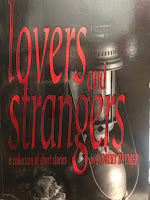
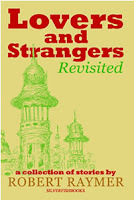
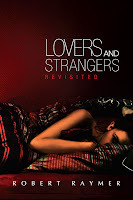
Every fewyears I get this urge to rewrite the 17 stories from Lovers and StrangersRevisited. No doubt that seemssilly and a waste of time for most writers since the book has already beenpublished, not once but three times! Originally published in Singapore as Lovers and Strangers (Heinemann Asia,1993, Writing in AsiaSeries), I revisited the stories in 2005 when a Malaysian lecturer requested touse the collection for a course on Malaysia and Singapore literature. The book—after consulting with an editor andgoing back to the original inspiration for each story, visiting many of theoriginal settings and overhauling the stories, adding new scenes,back-stories, and endings—was republished as Lovers and Strangers Revisited(Silverfish Books).

In 2008, a third revised version with twoadditional stories was published by MPH and won the 2009 Popular-The StarReader’s Choice Awards and was translated into French. To complement the MPH edition, I wrote a blogseries, The Story Behind the Story, about the development and the significant changes of each story that ledto their various magazine/literary journal publications—often used as writing/teachingaids in schools, colleges, and universities. Themain character from the story “Neighbors” was featured by an expat teacherin the New Straits Times, “Are You Mrs. Koh?”
So why revise the stories again? I’vealways felt that Lovers and Strangers Revisited, based on its publishing track record, deserves a wider audience bothinside and outside of Malaysia/Singapore. The collection is still available in French by GOPE Editions as Troisautres Malaisie and, in fact, the publisher will be exhibiting thecollection along with his other Malaysian titles at a French book fair in KualaLumpur on 24 March 2024.
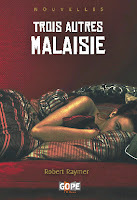
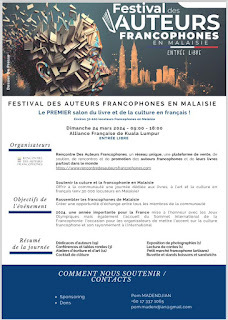
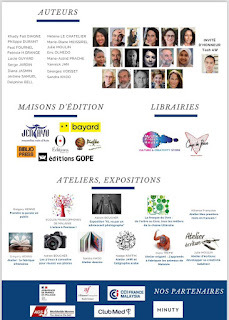
So far, the individual stories have beenpublished 82 times in 12 countries (11 stories in USA and UK); taught in Malaysiansecondary school literature for six years (“Neighbors”), as well as in Canadaand USA (Ohio University); and several stories have been taught for years in variousMalaysian universities and private colleges. Film students at Ohio University found the original collection intheir library, came to Malaysia, and filmed, “Home for Hari Raya.”
Maybe because of this persistent beliefthat these stories (individually and as a collection) are still relevant—theyare still being taught in Malaysia as of May 2023 and are still being publishedin the USA (“The Stare” appeared in Thema, Spring 2021). As I began editing (clarifyingdetails, cutting needless words or phrases, tightening the writing), I couldsee significant improvements in each story.
Also, it feels like it’s a trip down memorylane, both as a writer and as an expatriate living in Malaysia. “Mat Salleh,” for example, was my first publishedstory in January 1986, a nonfiction short story (New Straits Times) andmy first published story in the UK (My Weekly). "Teh-O in K.L." was my first published short story is USA (Aim). The other stories, all published but one, are all loosely based on myearly experiences or on my observations of kampong and modern-day life inMalaysia. Not all the memories are good—afailed marriage for me (“Dark Blue Threads”) and a neighbor committingsuicide (“Neighbors”); nevertheless, these stories are my Malaysian roots,so to speak, having lived in Penang as an expatriate for twenty-one years andtaught creative writing at USM for ten years, before moving to Sarawak to grownew roots.
The real payoff, of course, is that theserevised stories now have a chance for future publications in the US orUK or Australia or elsewhere—the main reason I do it. Or the collection is republished to a wideraudience. Or the play that I added as abonus, “One Drink Too Many,” a comedy adapted from the short story, “Neighbors,”is produced in Malaysia or Singapore. Preferably, all three!
What helps me to keep the faith in Loversand Strangers Revisited (and the individual stories) is rereading theMPH back-of-the-book reviews and other review snippets that I include whilemarketing the collection to agents and other publishers:
MPH Publisher’s synopsisand reviews from the back of the book:
In this collection of 17 stories, Robert Raymer portraysthe traditional in modernity, the unexpected in relationships both familiar andstrange, the recurring theme of race even as contemporary Malaysia finds waysto understand its multicultural milieu.
In the title story, a selfish writer gets more than hebargained for when two former lovers haunt him in more ways than one. In anotherstory, a man's loneliness turns into obsession when he shares a taxi ride witha Malay woman. A Clark Gable lookalike is a barrister wannabe with a shockingsecret and gossipy neighbours reveal more about themselves than the man whocommits suicide. Elsewhere, expats cross the border to Had Yai to experience agood bargain in the Thai flesh trade before going home to their wives inAmerica.
In this republished edition of Lovers and StrangersRevisited, Raymer's snapshots of scenes from various walks of life providean insider-outsider view on love, family and culture, and urges a second lookat ourselves in the mirror of self-awareness.
Praise for Lovers and Strangers Revisited
'Raymer not only writes from his own viewpoint as a foreignerand observer, but also delves into the minds of desperate Malay woman, a youngIndian girl, an adulterous Chinese couple, and an old Chinese man who survivedthe Japanese occupation... He has an uncanny ability to hold a mirror up to thepeople of his adopted country, not as a foreigner but as one of us. Hisstories are full of personalities that you know, you work with them, or livenext door to them, or eavesdrop on them at the kopi tiam.' The BorneoPost
'This account ("On Fridays") of a crammed ridewith strangers in a taxi may well stand as a metaphor of Raymer's ownexperience of living among Malaysians... He imbues each of the characters inhis stories with a realistic, genuinely believable voice even as he tempers itwith the valuable perspective of an observer.' New Straits Times
'Raymer gives a lushly and rich and multi-layered renditionof the Malaysian way of life as colored and influenced by his own experiencesfrom his twenty years as an expat here... These stories are some of the fewauthentic portrayals of the inner workings and inner plays of the averageMalaysian's life in all of its robustness and unique cultural settings.' TheExpat
A little ego boost for sure, something all writers need nowand then. Also, it’s good to touch base,like stretching before exercising. Now that2023 is over (having rewritten six books in two years), I’m ready to embark on new writing projects for 2024 and beyond...
—Borneo ExpatWriter
My interviews with other Malaysian writers:Ivy Ngeow author of Cry of the Flying Rhino, winner of the 2016 Proverse Prize. Golda Mowe author of Iban Dream and Iban JourneyPreeta Samarasan, author of Evening is the Whole Day, finalist for the Commonwealth Writers Prize 2009.
Chuah Guat Eng, author of Echoes of Silence and Days of Change.
Malachi Edwin Vethamani, author of Complicated Lives and Life Happens.
Robert Raymer's Blog
- Robert Raymer's profile
- 3 followers



